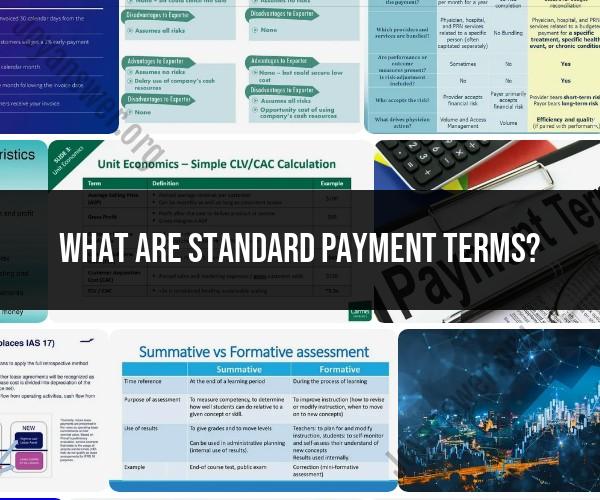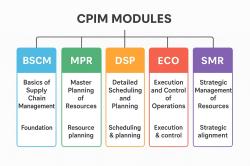What are standard payment terms?
Demystifying Standard Payment Terms in Business
Standard payment terms in business are a fundamental aspect of commercial transactions. They define the agreed-upon conditions and timeframes for payment between a buyer and a seller. In this guide, we will demystify standard payment terms, explaining their significance, common components, and variations.
What Are Standard Payment Terms?
Standard payment terms, often referred to as "payment terms" or "credit terms," are mutually agreed-upon guidelines that govern when and how a seller will receive payment from a buyer for goods or services rendered. These terms specify critical details, including due dates, payment methods, and any applicable discounts or penalties.
Components of Standard Payment Terms:
Invoice Date: The date when the seller issues the invoice to the buyer, initiating the payment process.
Due Date: The deadline by which the buyer is expected to make the payment. It is typically calculated from the invoice date and may be specified in terms of a certain number of days (e.g., Net 30) or at the end of the month in which the invoice was issued.
Payment Method: The agreed-upon method by which the buyer will remit the payment, such as credit card, check, bank transfer, or electronic funds transfer (EFT).
Discount Terms: In some cases, sellers offer early payment discounts to incentivize prompt payment. Common discount terms include "2/10, Net 30," which means the buyer can take a 2% discount if payment is made within 10 days, with the full amount due within 30 days.
Late Payment Penalties: Payment terms may specify penalties or interest charges that the buyer must pay in case of late payment. These penalties serve as a disincentive for delayed payments.
Why Are Standard Payment Terms Important?
Standard payment terms play a crucial role in business transactions for several reasons:
Clarity: They establish clear expectations between buyers and sellers regarding payment obligations, reducing the risk of misunderstandings or disputes.
Cash Flow Management: Payment terms help sellers manage their cash flow by providing predictability about when payments will be received.
Credit Management: They assist sellers in assessing the creditworthiness of buyers and setting appropriate credit limits.
Financial Planning: Buyers can plan their financial obligations and allocate resources effectively based on agreed-upon payment schedules.
Variations in Payment Terms:
Standard payment terms can vary widely based on industry, business practices, and the nature of the transaction. Some common variations include:
Net Terms: These specify the number of days within which payment is expected (e.g., Net 15, Net 60).
End-of-Month Terms: Payment is due at the end of the month following the invoice date (e.g., EOM+30).
COD (Cash on Delivery): Payment is due when the goods or services are delivered.
Immediate Payment: Payment is required upon receipt of the invoice.
Customized Terms: Businesses may negotiate customized payment terms to suit their specific needs, particularly in B2B transactions.
Conclusion:
Demystifying standard payment terms is essential for businesses to conduct smooth and transparent financial transactions. These terms serve as a foundation for healthy financial relationships, ensuring that buyers and sellers understand their respective obligations and timelines.
By navigating the complexities of standard payment terms with clarity and transparency, businesses can enhance trust, streamline cash flow management, and foster successful long-term partnerships.













